Producers in one of Australia’s most significant food bowls say their plight has been ignored, after the NSW Government approved a bid by international gas and oil company Santos to explore the region as part of the controversial Hunter Gas Pipeline project.
Just weeks before the NSW Government went into caretaker mode, Treasurer and Energy Minister Matt Kean granted Santos the ability to “enter lands” and carry out surveys to investigate the possible routes for the pipeline.
Santos acquired the Hunter Gas Pipeline in mid-2022 – the full, Queensland-Hunter Gas Pipeline project was approved in 2009 – but has only just been given the power to survey, following a January 13 determination.
The authority to survey also allows the private gas and oil company to “take samples from lands for examination and testing”.
NSW Professor Ian Acworth has 50 years experience as a hydrogeologist, including 30 years based in the Liverpool Plains.
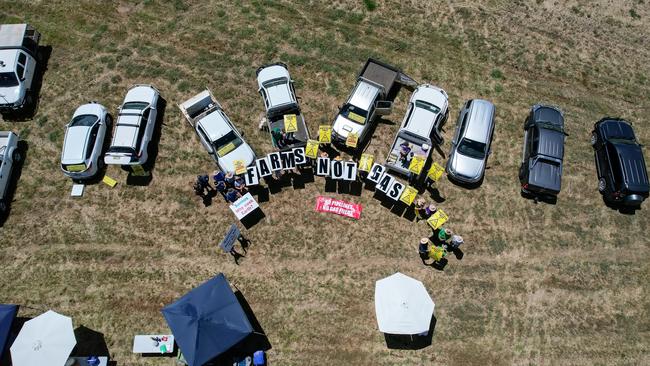
He was given access to data loggers left behind by BHP on land at Gunnedah on the Liverpool Plains, which have shown a “shocking situation” for groundwater resources.
“The coal beds are quite shallow into the eastern part of the area, and the aquifer they’re pumping for irrigation is in contact with the coal seams,” he said.
“Pumping from Gunnedah formation directly impacts the coal seams and will directly impact supplies. If you let Santos put in more bore holes, which rip into the same aquifer the farmers are pumping from, the levels will drop even quicker.
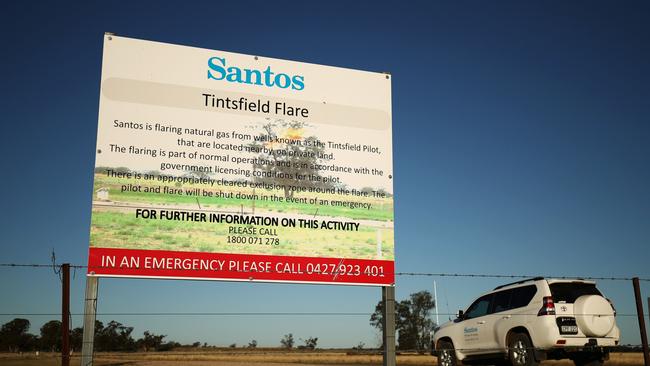
“You dry up rivers, dry up vegetation that is deep rooted into soils, it’s a pretty nasty thing to be doing just to chase a bit of profit for 20 years.”
NewsLocal spoke to farmers and landowners from across the vast Liverpool Plains and potential Upper Hunter pipeline route – as they continued to air concerns about the project. Although Mr Kean and representatives for both the state government and Santos were eager to allay fears.
“Multiple face-to-face question and answer sessions were held with landholders regarding the authority to survey process,” an Energy Department spokesman said, who noted a two-month consultation process was held last year.
The authority to survey, which is subject to stringent conditions, will require Santos to seek to negotiate access with at least fourteen days written notice to the owner or occupier before conducting surveys, and comply with land owners.
A spokeswoman for Mr Kean said the authority to survey was granted following consultation with landholders and a review of submissions, while pointing out the project is supported by key Labor figures, including leader Chris Minns.
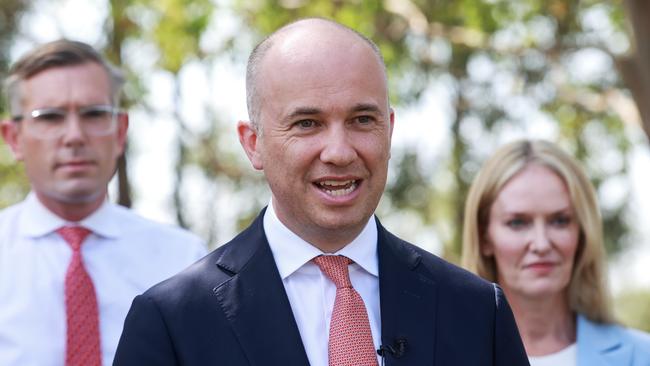
“Hunter Gas Pipeline Pty Ltd is expected to behave in a respectful and responsible manner and to use their rights of access under the authority to survey only as a last resort,” she said.
A Santos spokeswoman said the company had a “strong track record” of working with farmers, and that consultation for the gas exploration process was “still underway and will continue over the coming year”.
“Santos encourages anyone who is yet to receive the information they need, or wants to meet with Santos, to call us,” the spokeswoman said.
“Our land access team is on the ground and very happy to meet with landholders at their convenience.
“We want to hear from landholders about how we can locate the pipeline to minimise impacts on the environment, their land, infrastructure, business activities and convenience.”
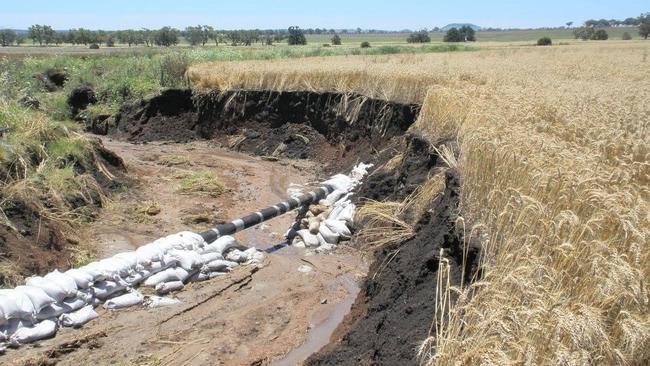
A Planning and Environment Department spokeswoman said “strict provisions” were in place during the entire lifespan of a pipeline.
“The department’s planning team is yet to receive the final pipeline design, route alignment and the relevant management plans and studies required under conditions of the project approval,” she said.
“Devastating for communities”: The farmers fighting the project
Rosemary and Paul Nankivell, Quirindi
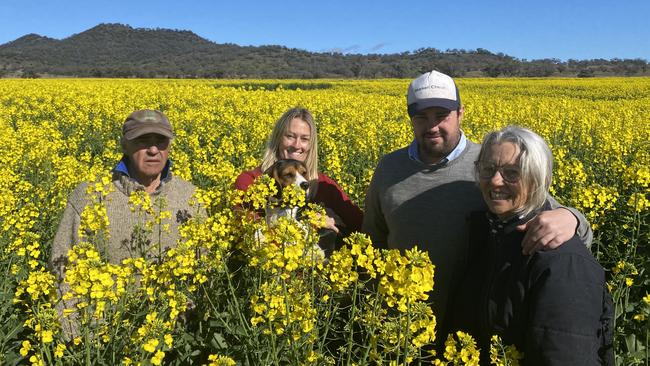
Quirindi farmers Rosemary and Paul Nankivell produce dryland cotton, wheat, canola, as well as cattle.
Ms Nankivell, chairman of the Spring Ridge branch of the NSW Farmers Association, believes a major produce area like the Liverpool Plains would be “wrecked” because of coal seam gas.
“It’s a magnificent area to farm on, good rainfall, black soil, as good as Ukraine,” she said.
“There’s all this beautiful farmland and the aquifers underneath are going to be sacrificed.
“This is a typical move of gas companies, they get approval in state forest and then they move out onto the better country.”
Despite claims gas is in a shortage, Ms Nankivell isn’t buying it.
“There is not a shortage of gas, up to 75 per cent of gas is exported, this is pollywaffle from Santos and the state government,” she added.
“The government sees gas and they think they’re going to make a lot of money out of and it’s just not happening.”
Not just a farmer but an international economist with more than 30 years’ experience, Mr Nankivell believes gas mining will have a catastrophic economic effect, destroying the capacity to farm, the profitability and economics of farming.
“The value of natural capital will be destroyed and the value of livelihoods, urban, peri-urban and suburban in those regional communities will be destroyed,” he said.
“Not just the farming community, but the communities in the town will lose their water and they depend on the farm sector for services and employment, and they will be destroyed as well.”
Pip Murray, Gunnedah
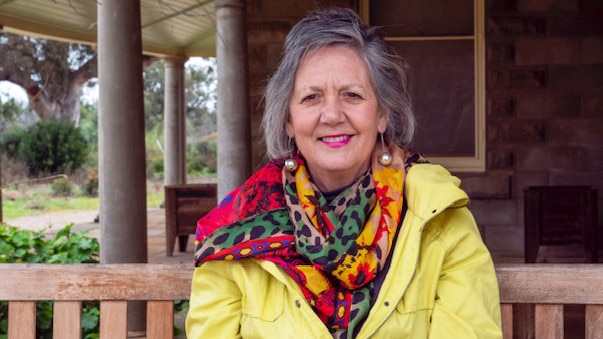
Former journalist and Gunnedah farmer Pip Murray – who is running for the upper house on the Elizabeth Farrelly ticket – believes it’s a “joke” the NSW Government would forego valuable farming country to mine for gas.
With a pilot well at her doorstep, she’s fighting for the land to be enjoyed by future generations, one free of gas wells and pipelines.
“Water is our main concern, without water we may as well pack up and leave, we can’t live without,” she said.
“It’s been demonstrated by scientists that if there is drilling into the aquifer, the water levels will drop dramatically, bores dry up, it can cause subsidence, land values drop, you can’t get insurance.
“It has such a devastating domino effect on the whole country.”
Ms Murray said the belief there is a shortage of gas in Australia is a lie.
“We are sending 72 per cent of east coast production offshore,” she said.
“Coal seam gas mining is much more insidious than a coal mine, it’s something you can’t see.
“The pipeline would be devastating for many landowners and communities.”
Doug Frend, Gunnedah
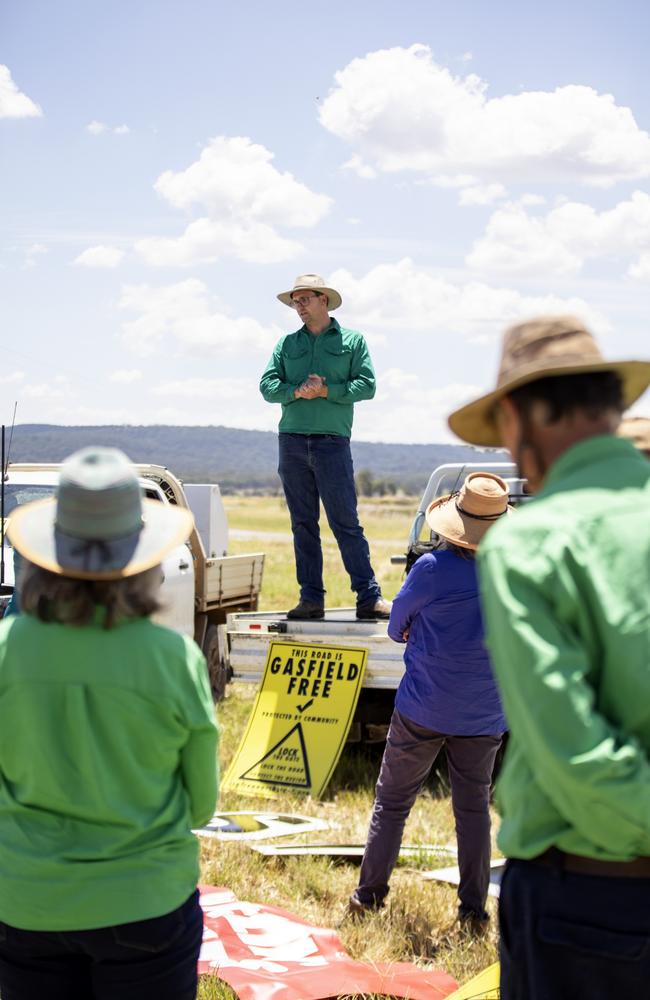
A third-generation farmer, the 39-year-old runs a sustainable beef and grains operation southwest of Gunnedah, which is also prime koala habitat.
He said they’re totally reliant on a clean groundwater supply, believing renewables are the answer not gas fields.
“These gas fields are vast, sprawling networks of pipeline, and we’re worried it will decimate our water supplies,” he said.
“We grow thousands of tonnes of wheat and sorghum, barley every year. If you pull the plug from underneath it you could be left with absolutely nothing.
“We think generationally and every day when we get up we make decisions that are going to benefit, not just the next year but 10, 20, 30 years time.”
The father-of-two is speaking strongly against the NSW Government’s latest approval, hoping their message will hit hard for the state election.
“We feel like we’re being attacked and we’re going to do what we can to attack them in marginal seats because we are not willing to live in a gas field,” he added.
“It’s boosting Santos’s gas development dream. The NSW Government are not as green as people think they are.”
Peter Wills, Quirindi
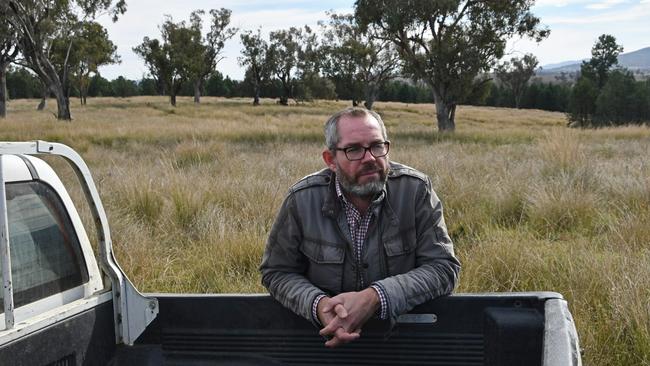
A sixth-generation Liverpool Plains farmer, Pete Wills – who farms sorghum and barley crops, and beef cattle – has long fought against the plans.
Over a decade ago, Santos approached Mr Wills’ father to start gas exploration, which his dad refused.
“We’ve been fighting this for over 15 years,” Mr Wills said.
“My father was approached first and he was very strongly opposed to it, given the huge risks to the water and irrigation we have.
“He, more forcefully than I’m recounting, told them where to go – but here we are now and there’s another Santos pipeline project.”
Mr Wills had said there were “so many risks for landowners”.
“It’ll be less than a metre underground, we use huge machinery – we’ve asked them what the weight limits would be and they can’t tell us,” he said.
“I’ve got neighbours who have a pipeline hitting every single irrigation paddock they own, they operate with no regard for how we run our businesses.
“There’s red flags all over the shop.”
Mr Wills was worried about the future – “it’ll be left to rot in the ground” – and the valuation of his property.
“If you saw two of the exact same properties side-by-side, but one with a high-pressure gas pipeline underneath – I’d know which one I’d choose to buy,” he said.
Kate Gunn, Gunnedah
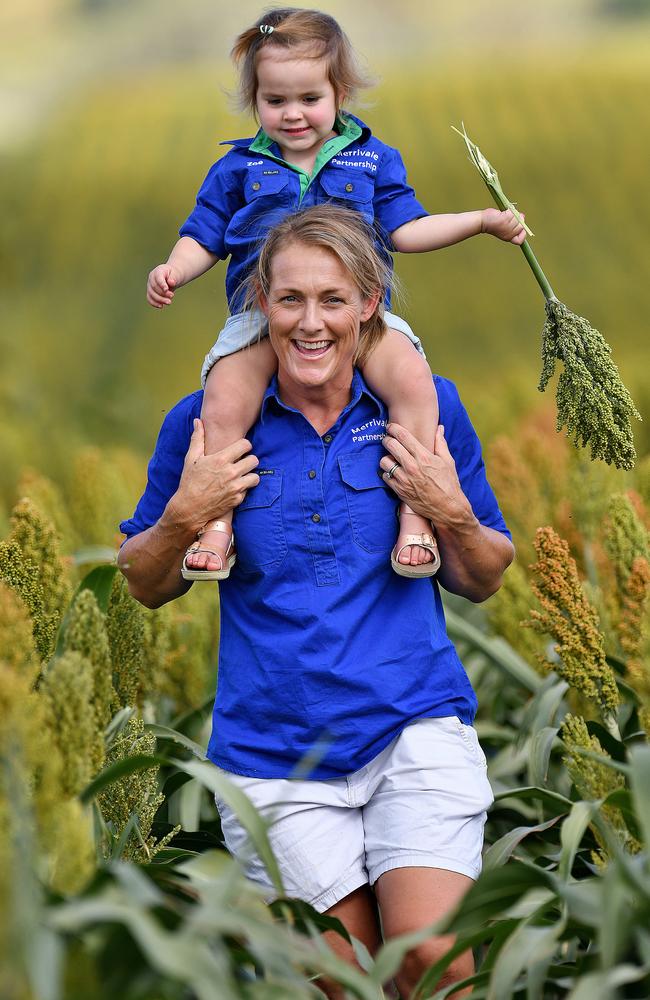
Crop and cattle farmer and Liver Plains Action Group chair Kate Gunn’s property isn’t on the potential route of the proposed line, her concerns centre around the extensive extraction of the area.
“We had Santos seismic testing on roads adjoining our property and on our neighbours’ neck of the woods,” she said.
“Every farm we own or lease is under a petroleum exploration licence.
“(Santos) are going to extract as much coal seam gas as they can from under that area, so that’s very alarming to us, the extensive impacts associated with that extraction.”
Ms Gunn feared the risk to the Liverpool Plains, “a jewel of Australian agriculture”, and said it should be “respected”.
“Underground water sources are vital for farming across the area, it’s vital for life, it should be the number one thing we look after,” she said.
“It’s unthinkable that decision makers would put water resources at certain risk.”
She also said the consultation process with the group, and all impacted landowners, was “a mystery”.
“There was no consultation with our community,” she said.
Meg Bowman, Singleton
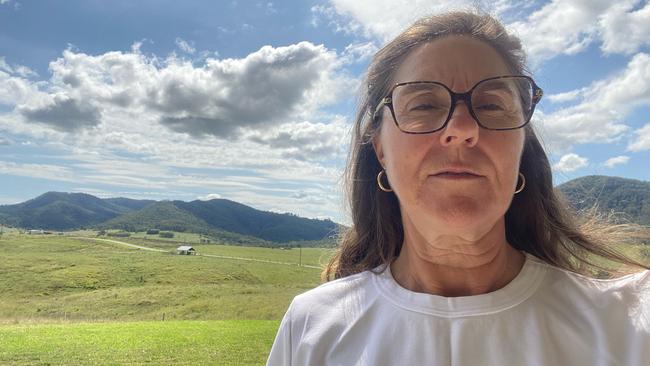
Meg Bowman, a Singleton-based beef farmer, and Hunter Gas Landholder Rights Alliance president, said she heard she was in the survey corridor while reading the news at a bus stop.
“We formed the group because all of our concerns were getting really in depth and it was just getting so overwhelming,” she said.
One of her “main concerns” is water.
“Any change to the soil may mean the water runs of differently, in different directions,” she said.
“The pipeline goes through massive flood-prone areas – we’ve questioned the government about whether it’s appropriate to put it through there.”
A drop in property value – Ms Bowman said one group member had an independent quote of a 30 per cent dip – is another fear.
“They said: ‘there’s the drop in price, but that’s only if I can find a buyer’,” Ms Bowman said.
Ms Bowman said city dwellers didn’t fully comprehend the amount of produce that came out of the plains.
“Imagine the price of produce is our food-growing regions are taken over by gas,” she said.
Ms Bowman said they’d sought but not received answers.
“We’ve requested almost 10 meetings with the minister, he just ignores us,” she said.
“I can’t say he refused it because he doesn’t respond – if we send emails addressed to him he never actually answers.”
Anne McGowan, Singleton
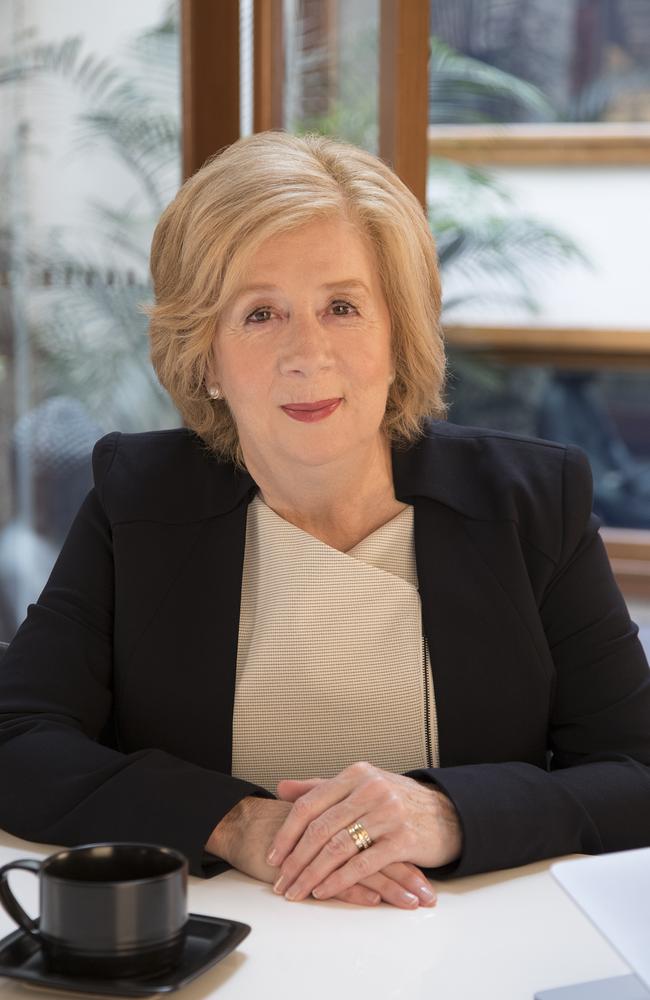
The director of an Upper Hunter olive grove, Anne McGowan – who is running in part on an upper house ticket as a result of what she sees as “misleading” information given to impacted farmers – said residents were “understandably upset”.
“The vast majority of land holders and farmers are opposed to the gas line,” she said.
“They do not want this infrastructure on their properties and the risks associated with it – it’s a high-pressure gas line, it will run under creeks, valleys recently exposed to floods.”
Ms McGowan also raised concerns about fracking in the area.
“The fracking could undermine the water quality and impact the basin,” she said.
“There’s pristine water there, you can understand why people are very upset about it.”
Ms McGowan said herself and others had provided research on the risks involved to the Planning Department.
“No one was notified the treasurer was going to go ahead and approve the gas pipeline or approve the authority to survey – we think he’s made a mistake and needs to cancel the (authority to) survey,” she said.
“We cannot risk things going wrong.”
Robert Barry, Willow Tree
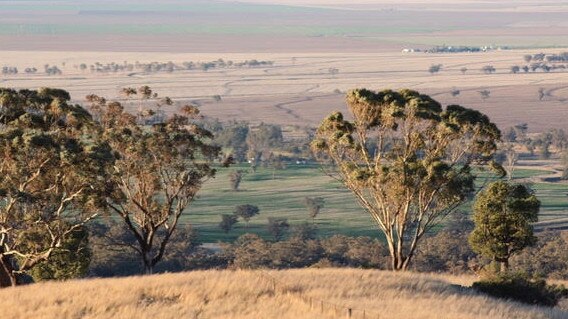
The former deputy chairman of the Australian Wheat Board and Chairman of Snowy Hydro, Mr Barry sees the Liverpool Plains as “iconic” agricultural land.
“The best of the best – it would be disastrous for the plains, disastrous for people like us who rely on bores,” he said.
Now living in Sydney, Mr Barry spends one week out of every month at his property ‘Berwicks’, near Willow Tree, which he has owned for some 38 years.
He said there was a reason BHP walked away from mining coal and Chinese Shenhua Watermark mine didn’t proceed on the Liverpool Plains.
“Water is a major issue, but also surface disturbance, and the water pumped out from coal seams can’t be used because it is high in salts so it’s got to be processed before it can be used,” he explained.
“I can’t think of a country in the world that would put at risk it’s most prime agricultural land, it’s beggars' belief they are prepared to do this.
“Why touch it, it’s crazy.”
He wants the NSW Government to rubber stamp a deal that will declare no mining or gas extraction can ever take place on the plains.
“They’re under pressure, with Santos saying the Narrabri project will not be commercial without extracting gas under the plains,” he said.
“I’m not anti coal seam gas, it’s just the appropriate areas to extract it, and that’s not on the plains.”
Alistair Donaldson, Boggabri
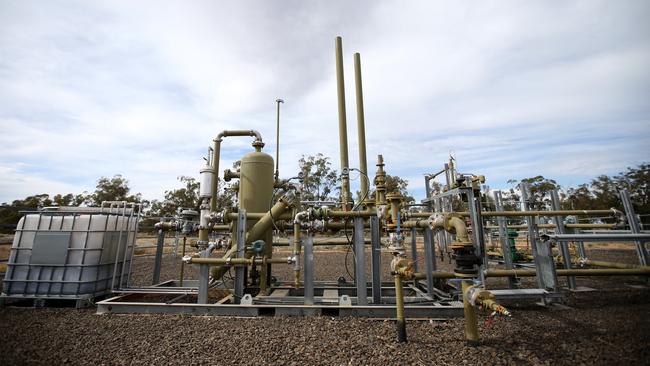
A fourth-generation farmer, Alistair Donaldson – whose property sits on 4500 acres of land west of Boggabri, on the corner of the Narrabri Gas project – is another whose property doesn’t sit above the pipeline.
He does, however, have experience of a pipe tunnelling under his properties having been on top of lines in 2010 running to the now Narrabri Gas plant.
“In previous experience, it (laying a pipeline) involves thousands of truck movements across the property,” he said.
“And then it’s very difficult to get that soil profile to settle down again.”
He was also concerned about the risk of rupture and the invasiveness of the type of high-pressure gas flowing under people’s homes.
“There’s a risk of a rupture – especially given it’s less than a metre under the ground,” Mr Donaldson said.
“And this type of gas is not typical, it’s unconventional – it’s a highly invasive process.”
Mr Donaldson also echoed the concerns of farmer Wills – what happens to the infrastructure after it lapses its expiry date?
“Once the world decides it’s had enough, there will be no decommissioning or removal of that pipeline, it will just stay there,” he said.
Political support
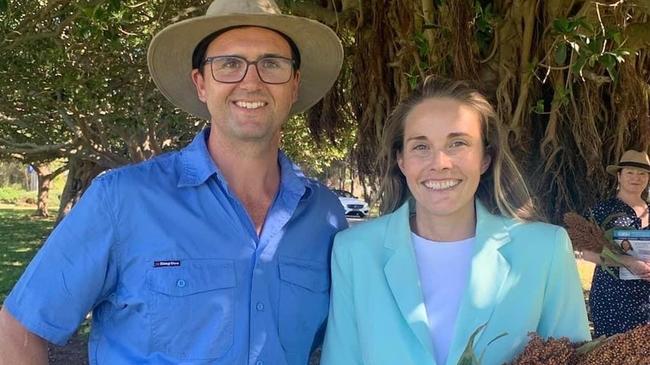
Independent candidate for Sydney seat Pittwater, Jacqui Scruby, is one of a number of ‘teal’ independents banding together with farmers pledging to stop the already approved Santos gas project at Narrabri and Hunter gas pipeline.
They have proposed changes to the planning legislation, which includes an exclusion zone for the Liverpool Plains because of the impacts to farmers.
“It makes economic sense, it’s the foodbowl of Australia and calling for an exclusion zone in that area is really important,” Ms Scruby said.
“Connection with food is what we all have, as soon as there’s an impact in the supply chain, it can cause chaos, so we need to listen to the science, we need to listen to the farmers, we need to apply some common sense to when it goes to applying to our energy.
“Alarmist rhetoric around that we have a gas shortage, it’s a misleading way to present the issue.”
Wanting voters on Saturday’s State Election to consider an independent and take a stand to fight the major parties.
“People and voters need to know there are big gaping holes when it comes to environmental policy,” she said.

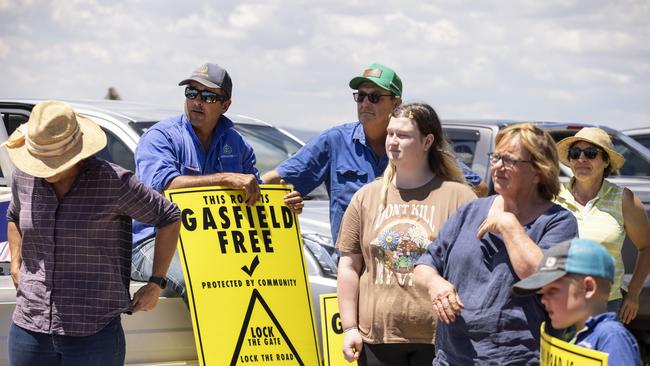
Add your comment to this story
To join the conversation, please log in. Don't have an account? Register
Join the conversation, you are commenting as Logout
Twice guilty for killer’s helper in mum’s brutal murder
He was once found guilty of trying to cover up the brutal murder of mum-of-two Carly McBride before his conviction was sensationally quashed. Now, James Cunneen is back behind bars.
Accused Good Friday killer denies fatal stabbing
Jacob Bell, accused of fatally stabbing Eddy Lemalama at the front door of his Lake Macquarie home on Good Friday last year, has pleaded not guilty and will face trial.